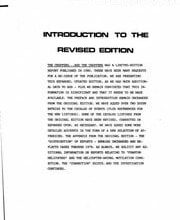Why NOAA is Crucial for UAP Research Amid ‘Project 2025’ Threats to Its Future

Title: Greenwald’s FOIA Request Sheds Light on NOAA’s Role in UAP Research Amid Calls to Dismantle the Agency
In an intriguing twist in the ongoing dialogue around Unidentified Aerial Phenomena (UAP), journalist Glenn Greenwald has submitted a Freedom of Information Act (FOIA) request for emails from Rear Admiral Timothy Gallaudet, the former Assistant Secretary of Commerce for Oceans and Atmosphere and head of the National Oceanic and Atmospheric Administration (NOAA). This request aims to uncover how NOAA has been engaging with the UAP issue, which has garnered increasing interest among the public and the government.
In his request, filed back in July 2023, Greenwald specifically sought correspondence containing keywords related to UAP, such as “Elizondo” and “Grusch.” The results from NOAA may potentially reveal significant information about the agency’s involvement in UAP research. Notably, Gallaudet’s role at NOAA gave him a unique vantage point for understanding these phenomena, especially as they relate to both environmental monitoring and national security.
In a recent update on his findings through The Black Vault, Greenwald noted a clear emphasis in the documents on interagency collaboration. NOAA demonstrated a willingness to share data and collaborate with military and intelligence personnel in broader efforts to understand UAP. With its wide array of technological monitoring capabilities, including satellites, radars, drones, and ground-based observation networks, NOAA plays a pivotal role in generating data outside the confines of the military.
However, there may be a challenging road ahead for NOAA. The far-right group’s political strategy, known as "Project 2025," advocates for the dismantling of NOAA, which has long been relied upon for weather tracking, climate change research, and public safety measures. According to the project document, the proposed changes aim to reduce what they refer to as “the climate change alarm industry,” targeting several critical federal agencies, including the 154-year-old National Weather Service.
Critics argue that dismantling NOAA could inadvertently close one of the few remaining avenues for UAP research that lies outside the military-industrial complex. By reducing NOAA’s capabilities, those advocating for change might unintentionally hinder the transparency and scientific inquiry surrounding UAP, a subject of increasing concern among both citizens and lawmakers.
Some notable Republican figures, including Rep. Mike Turner (R-Ohio), Rep. Mike Rogers (R-Ala.), Senate Minority Leader Mitch McConnell (R-Ky.), Speaker of the House Mike Johnson (R-La.), and Rand Paul (R-Ky.), have been reported to oppose provisions aimed at increasing UAP transparency. Their opposition raises questions about the motivations behind calls to dismantle a leading agency responsible for significant scientific research and data collection.
As the debate unfolds, the implications for NOAA are profound. If the agency is indeed dismantled, the UAP discourse may be reduced to a highly controlled narrative within the military domain, limiting public access to information and insights that could fuel scientific investigation and public understanding. The crucial question remains: Will the potential closure of NOAA’s UAP research capabilities further shroud the truth about unidentified phenomena in secrecy, or will it spark a new wave of advocacy for transparency in our skies?
Stay tuned as we continue to follow this developing story, highlighting how these important conversations shape the future of governmental research on UAP and climate science.




